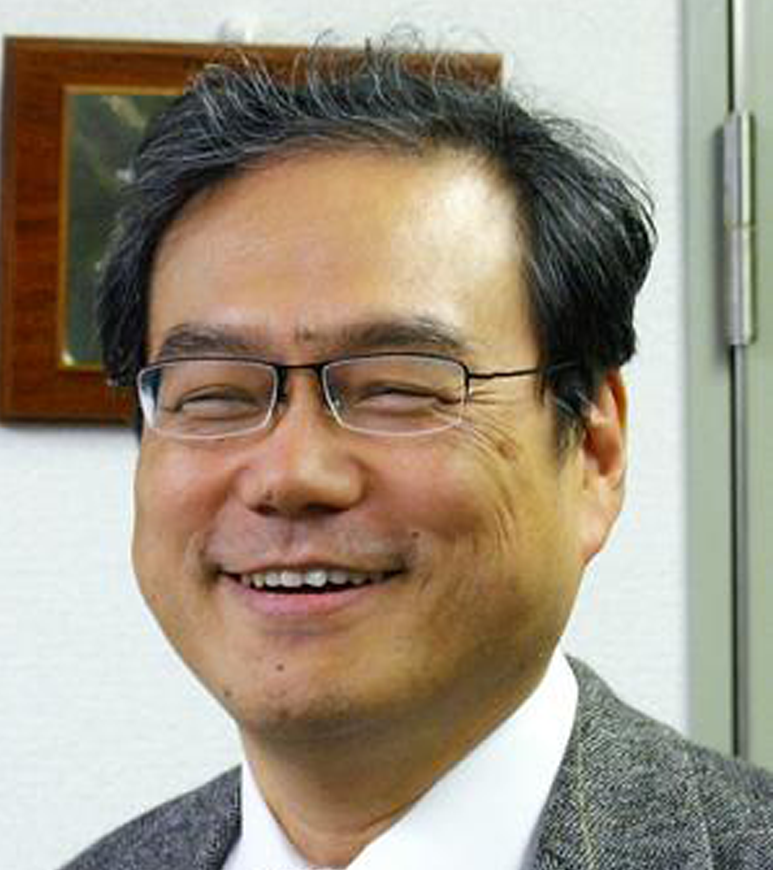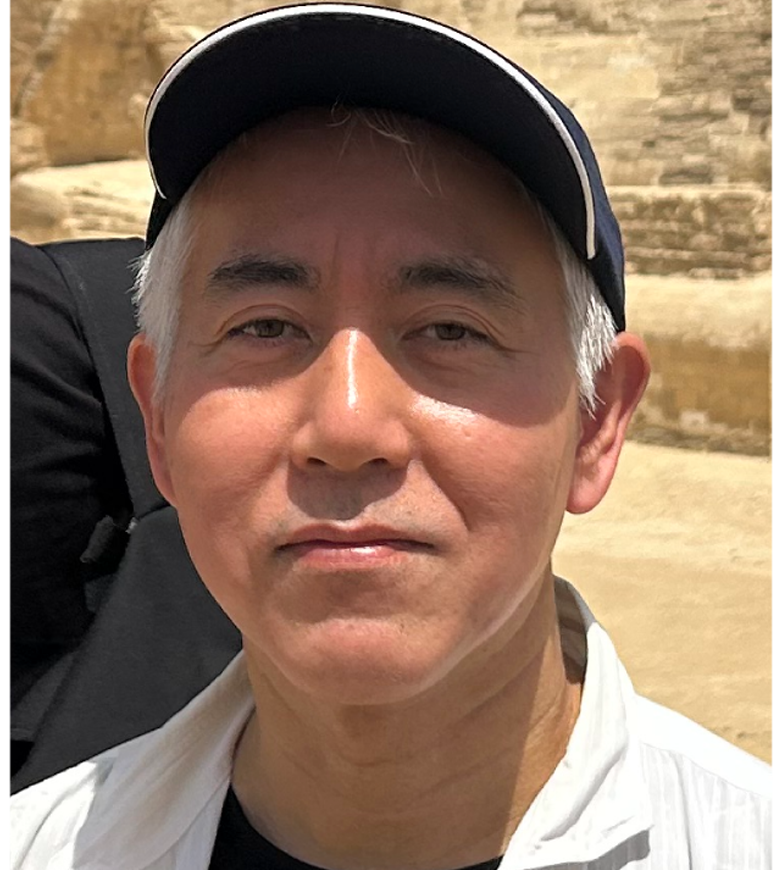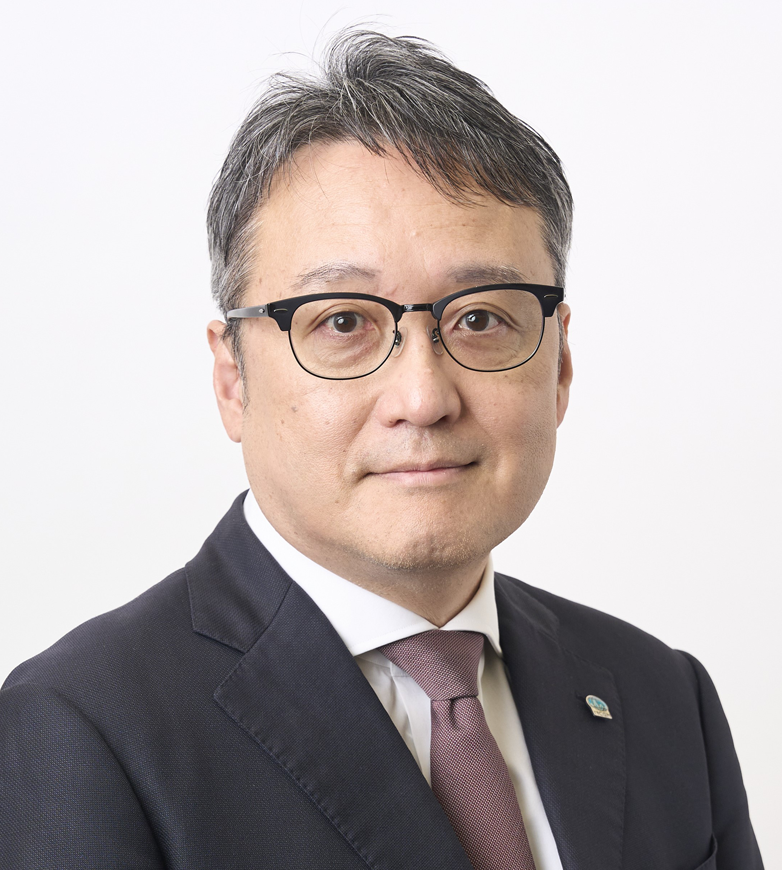News & Events
HOME > News & Events > Possible Proposal of Product Development of Japanese Vaccine, Drug, and Diagnostics for the Control of Infectious Diseases from Academia
Possible Proposal of Product Development of Japanese Vaccine, Drug, and Diagnostics for the Control of Infectious Diseases from Academia

- Dr. Norio Ohmagari
- Director, Department of Infectious Disease Clinical Policy, Bureau of Health Security and Management/ Specially Appointed Deputy Hospital Director/ Director, Disease Control and Prevention Center, National Center for Global Health and Medicine, Japan Institute for Health Security, Japan
Short Biography
Dr Ohmagari completed his clinical training in infectious diseases at the University of Texas-Houston. After serving as Head of the Infectious Diseases Department at Shizuoka Cancer Center, Dr Ohmagari joined NCGM in 2011, which is one of six national medical centres in Japan with a focus on infectious diseases. At NCGM, Dr Ohmagari has been Director of the Centre for Disease Control and Prevention since 2012. Dr Ohmagari contributes to WHO as Director of the WHO Collaborating Centre for Prevention, Preparedness and Response to Emerging Infectious Diseases (JPN-94). As a physician, Dr Ohmagari is directly involved in the clinical management of patients with infectious diseases. Dr Ohmagari is also actively involved in research and development of diagnostics, therapeutics and vaccines. At the same time, Dr Ohmagari works in the field of infectious disease crisis management in Japan.
Abstract
"Advancing Research and Development and Securing Diagnostics, Therapeutics, and Vaccines for Infectious Disease Control in Japan: Policy Trends"
In response to the increasing need for pandemic preparedness, the Government of Japan has launched a series of policy initiatives aimed at reinforcing research and development (R&D) capacities and securing access to medical countermeasures (MCMs). Under the Third Term of the Health and Medical Strategy (2025–2029), the government is promoting an integrated R&D ecosystem spanning basic research through clinical development. Strategic priorities include the development and timely deployment of vaccines, therapeutics, and diagnostics; enhanced data sharing on pathogens; streamlined regulatory pathways during health emergencies; and improved risk communication with the public.
Additionally, the Basic Plan for Countermeasures against Novel Influenza and Other Infectious Diseases was comprehensively revised in July 2024 to incorporate lessons learned from the COVID-19 response. The updated plan prioritizes accelerated MCM development, robust international collaboration in R&D, and digital transformation for real-time epidemiological surveillance and early warning systems.
Taken together, these policy reforms represent a proactive and coordinated national strategy to strengthen Japan’s capacity for rapid response to emerging infectious disease threats, in alignment with global health security objectives.

- Christopher Dowson
- Professor of Microbiology, Co-Director of the Sir Howard Dalton Centre for Translational Mechanistic Enzymology, School of Life Sciences, University of Warwick, CV4 7AJ c.g.dowson@warwick.ac.uk Mob. +44(0)78762167809
Married, three grown up children, life outside of work in rural Warwickshire and Sailing West Coast of Scotland.
Short Biography
Chris' research has been funded by BBSRC, EPSRC, MRC, NIH, Wellcome Trust, smaller charities and industry. It is highly collaborative, involving teams of biologists, chemists, engineers and physicists across universities to help drive innovations from this research forward to a commercial outcome, which includes the development and use of high throughput biochemical assays and structural determination using the XChem platform at Diamond Light source and virtual reality to visualise antibiotic: target protein interactions. Industry partners past and present include AstraZeneca, Basilea, BicycleTx, Cubist, LifeArc, Merck, Novartis, Novobiotic, GSK and supported recently in AMR SME engagement with the Medicines Discovery Catapult MDC at Warwick and currently the Antimicrobial Screening Facility at Warwick. He is currently engaged in the open source antibiotics discovery program and helping to develop and influence global AMR discovery policy and training for the next generation of AMR leaders. This has leapt forward with a £1.5M donation from the GB Sasakawa Foundation to drive UK-Japan collaboration to tackle AMR. This award will support two policy fellows, one from UKHSA the 'Dame Sally Davies Fellowship' and another NCGM, Tokyo the 'Mr Yasuhisa Shinozaki Fellowship' plus four science programs arising from the GBSF/HDC Tokyo workshop March 2024.
Abstract
Antimicrobial Resistance (AMR) is a global strategic priority that requires innovative global solutions both to the discovery new therapies and to train the next generation of leaders. A failure to tackle AMR will impact upon UN Sustainable Development Goals yet aspirations within these goals, to improve innovation, and globalization of research partnerships, may provide an attractive solution to tackle AMR as a global pandemic, which worked well in helping to tackle COVID-19. Traditionally antibiotic discovery has rested squarely with global pharma. This has now changed. To rebuild our discovery capabilities we need to act decisively, building new sustainable partnerships across academia, industry, and governments to meet global public health need. In response to these challenges, the LEAD (Leadership to Enhance Antimicrobial Discovery) Coalition has been established to implement innovative approaches to antimicrobial discovery and development. This initiative aims to build a more sustainable R&D ecosystem by fostering collaboration across new partnerships, strengthening institutional capacity, and investing in leadership development at all levels. A key objective is to create a sustainable ecosystem for low-cost drug discovery and development, which translates into securing the next generation of scientists in this critical field, ensuring long-term engagement and expertise as a part of health systems. Through coordinated efforts across individuals, institutions, and international partners, the LEAD Coalition seeks to address the structural and scientific barriers that have hindered current progress in antimicrobial innovation.

- Prof. Kouichi Morita
- Director, Dejima Infectious Disease Research Alliance, Nagasaki University, Japan
Short Biography
I have worked in Tropical Medicine for over 40 years, focusing on arthropod-borne viral diseases such as dengue, Zika, Japanese encephalitis, chikungunya, and SFTS, while also conducting extensive COVID-19 research in recent years. My work spans molecular, epidemiological, and operational research in disease control. As head of the WHO Collaborating Centre on Tropical and Emerging Viral Diseases, I support global programs and contribute expertise in vaccine development, having led teams that developed candidates for West Nile virus, dengue, and SARS. Since April 2022, I have served as Director of the Dejima Infectious Disease Research Alliance (DIDA) at Nagasaki University, where we launched a new SCARDA/AMED-funded project to develop vaccines against dengue, COVID-19, Ebola, and other priority infectious diseases.
Abstract
"Dengue Vaccine Development: Challenges and Innovations"
Dengue fever, a mosquito-borne viral disease characterized by fever, rash, and joint pain, infects about 390 million people annually, with 100 million developing symptoms. Four viral serotypes exist, and secondary infections often cause severe disease, likely through antibody-dependent enhancement (ADE). The absence of reliable small animal models and the high human tropism of the virus have hindered vaccine development. Although a first-generation vaccine (Dengvaxia) was introduced, it was suspended due to increased severe cases in previously uninfected recipients, raising concerns about ADE. A second-generation vaccine (TAK-003) has since been approved, yet improved vaccines remain essential.
At the Vaccine Research and Development Center (VRDC), multiple approaches are underway. First, in collaboration with the National Institute of Infectious Diseases, a comprehensive ADE assay system was developed using single-replication-increase particles (SRIPs). This revealed that ADE can occur not only between serotypes but also between genotypes, highlighting the need for broad vaccine evaluation.
Second, VRDC contributes to live vaccine (KD-382) development at KM Biologics. In a phase I trial of KD-382, neutralizing antibodies persisted for a year after one dose, and risk of ADE was evaluated for phase II trials.
Third, VRDC collaborates with NEC on mRNA vaccines. AI-based epitope prediction led to promising B-cell vaccine candidates, with mice immunized against serotype 2 showing high neutralizing antibody titers. Parallel work for other serotypes and T-cell vaccine design is in progress.

- Prof. Sohkichi Matsumoto
- Professor, Niigata University School of Medicine, Japan
Short Biography
Sohkichi Matsumoto is Professor of Bacteriology at the Graduate School of Medical and Dental Sciences, Niigata University. He received Ph.D. in Medicine, 1998 and Ph.D. in Dentistry, 1999 from Nagasaki University. His research focuses on the mechanisms by which Mycobacterium tuberculosis and related mycobacteria persist in host tissues through dormancy and subsequently reactivate. In a recent study, his team discovered a novel dormancy mechanism in which the histone-like protein MDP1, via its intrinsically disordered region, cross-links adjacent DNA strands in a unique “double-sided-tape” fashion, thereby promoting DNA aggregation and dormancy induction.
Beyond his role at Niigata, Professor Matsumoto holds adjunct and visiting professorships at Osaka Metropolitan University, Hokkaido University, and Airlangga University in Indonesia. He also serves as the Chair of the Mycobacteria Subcommittee of the U.S.–Japan Cooperative Medical Sciences Program (USJCMSP), fostering international collaboration in mycobacterial research.
Abstract
"Mycobacterium Control: Innovative Approaches and Challenges in Vaccine and Drug Development"
One of the major reasons why tuberculosis (TB) remains difficult to control is the phenomenon of dormancy in Mycobacterium tuberculosis. Mycobacteria frequently enter a dormant state, acquiring drug tolerance and necessitating long treatment courses of six months to one year. Dormant bacilli can survive for prolonged periods, and it is estimated that one-quarter of the global population carries latent M. tuberculosis infection (LTBI). Reactivation of dormant bacilli is triggered by immunosuppression caused by HIV infection, aging, or anti-inflammatory therapy, leading to recurrence of active TB. Thus, the vast pool of asymptomatic carriers constitutes a major source of future TB cases. Detecting the risk of progression from LTBI to active disease is therefore of great clinical importance, yet no reliable diagnostic method has been established. To address this challenge, elucidating the molecular mechanisms underlying dormancy is essential.
We identified a DNA-binding protein, Mycobacterial DNA-binding Protein 1 (MDP1), which is highly expressed in slow-growing mycobacteria, with expression markedly increasing during the transition from stationary to dormant phase. Our studies revealed that overexpression of MDP1 alone is sufficient to arrest bacterial growth and induce dormancy. MDP1 possesses a conserved HU domain at the N-terminus and an unusually long intrinsically disordered region (IDR) at the C-terminus, unique to mycobacteria. Through the IDR, MDP1 cross-links two DNA double helices in a zipper-like manner, suppressing DNA function and driving dormancy—representing a previously unreported mechanism. Furthermore, epidemiological studies in TB-endemic regions suggest that immune responses against MDP1 are more prominent in asymptomatic individuals than in patients with active TB, raising the possibility that MDP1 could serve as a biomarker for risk prediction and a target for preventive strategies.

- Prof. Dr. Jarir At Thobari
- Director, Clinical Epidemiology and Biostatistics Unit, Universitas Gadjah Mada, Indonesia
Short Biography
Prof. Dr. Jarir At Thobari, D.Pharm., Ph.D., is Professor of Pharmacology and Epidemiology at Universitas Gadjah Mada (UGM) and Director of the Clinical Epidemiology and Biostatistics Unit (CEBU). He serves as Co-Lead of Cochrane Indonesia, Co-Lead of the Asia Pacific Vaccine Research Network (APVRN), and President of ISoP Indonesia. He is also a member of Indonesia’s National Immunisation Technical Advisory Group (ITAGI) and the Health Technology Assessment (HTA) Committee at the Ministry of Health. As a trial coordinator and principal investigator, he has led numerous clinical trials and HTA studies for vaccines, including rotavirus, typhoid, dengue, tuberculosis, and malaria. His expertise spans vaccine development, infectious diseases, pharmacovigilance, and evidence-based policymaking. Prof. Thobari has published more than 100 scientific articles in national and international peer-reviewed journals. In addition to his research and policy work, he is dedicated to mentoring the next generation of global health researchers and strengthening regional research capacity.
Abstract
"Clinical Trials and Vaccine Development: A Southeast Asian Perspective"
Southeast Asia (SEA), home to more than 700 million people, bears a disproportionate burden of infectious diseases such as dengue, tuberculosis, diarrheal diseases, and emerging viral infections. Despite this, the region remains underrepresented in global vaccine trials. Analyses of COVID-19 prevention studies and other large clinical trials show that Asian participants often account for less than 10% of enrolment, with most trial sites concentrated in high-income countries. This geographic imbalance limits generalizability, slows Health Technology Assessment (HTA) processes, and delays national immunisation program (NIP) adoption in SEA.
Indonesia provides a case study of both progress and ongoing challenges. As an archipelagic nation with a population of 275 million and diverse populations, Indonesia has developed hospital-based Clinical Research Units (CRUs), data and biostatistics centres, and an extensive training capacity through the WHO-TDR Regional Training Centre. Vaccine trials conducted locally—including for rotavirus (RV3-BB, Rotavac®), dengue (TAK-003), typhoid, and COVID-19—have generated crucial evidence to inform regulatory approval and HTA decisions. The introduction of the rotavirus vaccine in 2023 illustrates how local trial evidence directly shaped policy.
Regional networks such as the Asia-Pacific Vaccine Research Network (APVRN), Global Vaccine Data Network (GVDN), ASEAN-NDI, SEAMEO TROPMED, and SEAICRN strengthen multi-country collaboration, harmonise regulatory approaches, and enhance outbreak trial readiness.

- Prof. David Leslie Paterson
- Director, ADVANcing Clinical Evidence in Infectious Diseases (ADVANCE-ID), Singapore
Short Biography
-
Abstract
-

- Dr. Daisuke Tokita
- Director, Department of International Trials, Center for Clinical Sciences/ Secretary General ARISE, Japan Institute for Health Security, Japan
Short Biography
Dr. Daisuke Tokita graduated from Hiroshima University School of Medicine in 1995 and trained as a general surgeon specializing in gastroenterology and transplant surgery. He earned his Ph.D. in 2005 and subsequently conducted postdoctoral research in transplant immunology at the Thomas E. Starzl Transplantation Research Institute, University of Pittsburgh (2005–2008). From 2010 to 2017, he worked in pharmaceutical research and development, focusing on discovery and translational science.
He then transitioned to academic leadership, serving as Specially Appointed Professor at the Clinical and Translational Research Center, Niigata University, and later as Professor and Director of the Clinical and Academic Research Promotion Center at Tokyo Women’s Medical University (2019–2022). In 2017, he joined the Japan Institute for Health Security (then NCGM), where he first directed the Clinical Research Promotion Department at the Center for Clinical Sciences.
Since October 2024, Dr. Tokita has served as Director of the Department of International Trials at JIHS, working with partners in Southeast and East Asia on collaborative studies in infectious diseases, including antimicrobial resistance and emerging pathogens, and developing clinical trial networks to support regional and global preparedness.
Abstract
ARISE: "International Collaboration and Clinical Trial Network Development for Infectious Disease Research"
The Academic Research Organizations Alliance for Southeast and East Asia (ARISE) is an international clinical trial network established in 2021 by the National Center for Global Health and Medicine—now reorganized as the Japan Institute for Health Security (JIHS)—with support from the Japan Agency for Medical Research and Development (AMED). ARISE was created to strengthen collaborative capacity in infectious disease research and to provide a regional platform for both academic and industry-initiated clinical studies.
The network unites leading institutions across Southeast and East Asia, fostering partnerships that promote harmonized protocols, capacity building, and high-quality data collection. While ARISE is positioned to contribute to global pandemic preparedness and multi-country clinical trials, a central part of its mission is to advance academic research. In infectious diseases, where epidemiology and pathogen characteristics vary by region and over time, observational and surveillance studies are particularly important. These studies provide the baseline data necessary for designing robust interventional trials, including defining appropriate endpoints, estimating event rates, and ensuring regional relevance.
Through its dual focus on academic groundwork and clinical trial implementation, ARISE aims to create a sustainable ecosystem for infectious disease research. The alliance also prioritizes training, research methodology, and cross-border collaboration, ensuring that member sites are prepared to participate effectively in future studies.
By linking observational research with clinical trial infrastructure, ARISE contributes both to the generation of new scientific knowledge and to the region’s collective ability to respond effectively to emerging health threats. This integrated approach positions ARISE as a timely initiative dedicated to advancing infectious disease research through international collaboration.

